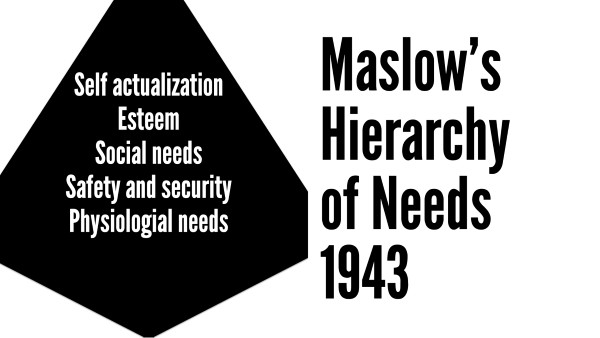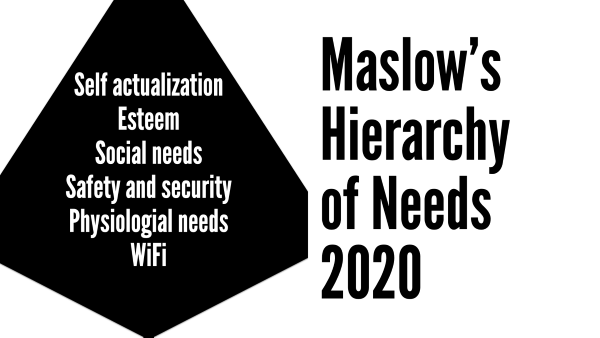Reading online hurts readers’ eyes, their bodies, their brains
I don’t know about you, but one of my goals in life is to never write anything that makes my readers throw up, resign or forget where they parked their car.… Read the full article
Writing workshops, communication consulting and writing services

I don’t know about you, but one of my goals in life is to never write anything that makes my readers throw up, resign or forget where they parked their car.… Read the full article

You may have heard that social scientists recently added a new item on Maslow’s hierarchy of needs.
The classic model of what drives human nature looked like this back in the day:

Our modern world has revealed another, even more basic human need …

… Wi-Fi.… Read the full article

Tick tock. Visitors spend less than four seconds on 25% of the web pages they visit, according to a study by University of Hamburg and University of Hannover researchers.… Read the full article

When usability guru Jakob Nielsen wanted to measure the effects of scannable web copy, he studied a webpage about Nebraska.
One of the original passages said:

When it comes to web heads, focus on the front.
That is, place your topic words at the beginning of your headline.… Read the full article

“Instant gratification takes too long,” said Carrie Fisher, the late actress, author and wit.
When it comes to interacting with websites, she was certainly correct.… Read the full article

Modifiers are “the great deceivers,” according to The Associated Press Guide to Good News Writing. “They give the illusion of specific meaning without its substance.”… Read the full article

Talk about TMI: Your readers receive the data equivalent of 174 newspapers — ads included — every single day, according to USC’s Annenberg School for Communication.… Read the full article

I had Mexican Monday with one of my favorite tech friends the other day. “Ann,” he says, “when are you going to start helping your clients use ChatGPT to write better messages faster?”… Read the full article

Beware adverbs, counsels The Poynter Institute’s Roy Peter Clark.
Too often, they dilute the meaning of the verb or repeat it: “The building was completely destroyed.”… Read the full article
____
Learn to get the word out with our proven-in-the-lab techniques in our email newsletter.